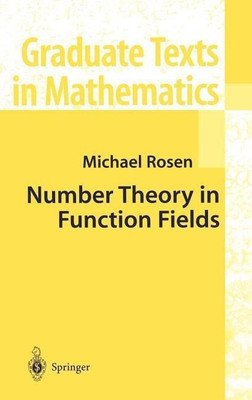Number Theory in Function Fields(English, Hardcover, Rosen Michael)
Quick Overview
Product Price Comparison
Elementary number theory is concerned with the arithmetic properties of the ring of integers, Z, and its field of fractions, the rational numbers, Q. Early on in the development of the subject it was noticed that Z has many properties in common with A = IF[T], the ring of polynomials over a finite field. Both rings are principal ideal domains, both have the property that the residue class ring of any non-zero ideal is finite, both rings have infinitely many prime elements, and both rings have finitely many units. Thus, one is led to suspect that many results which hold for Z have analogues of the ring A. This is indeed the case. The first four chapters of this book are devoted to illustrating this by presenting, for example, analogues of the little theorems of Fermat and Euler, Wilson's theorem, quadratic (and higher) reciprocity, the prime number theorem, and Dirichlet's theorem on primes in an arithmetic progression. All these results have been known for a long time, but it is hard to locate any exposition of them outside of the original papers. Algebraic number theory arises from elementary number theory by con- sidering finite algebraic extensions K of Q, which are called algebraic num- ber fields, and investigating properties of the ring of algebraic integers OK C K, defined as the integral closure of Z in K.


